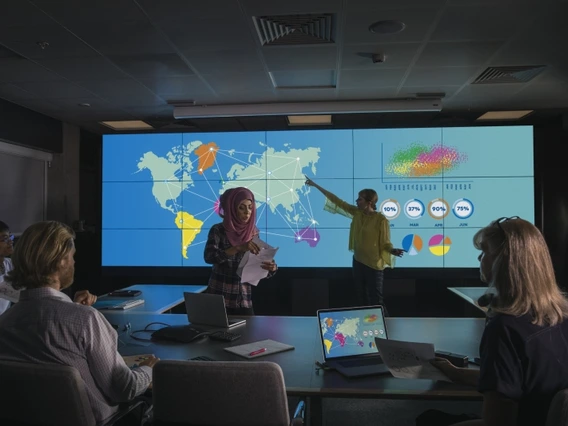Undergraduate Major Programs

Environmental and Water Resource Economics
Prepare to become a responsible leader in the management of natural resources through coursework in quantitative methods, economics, politics and communication. You'll learn how to formulate policies for responsibly managing natural resources while gaining skills in business management, human resources, and food/fiber production.

Environmental Engineering
Prepare for a career as an environmental engineer who can develop methods for clean manufacturing, wastewater treatment, water purification, alternative energy, and sustainable building. Learn about toxicity and pollutants and how to address issues across a range of industries that potentially affect the environment and public health in classroom study, research, and real-world design projects.

Environmental Science
Leadership, Sustainability, and Communication Emphasis
Immerse yourself in environmental laws, regulations and policies to discover how to be part of a successful response to pollution, natural resource management and climate change. Learn to predict how landscapes change under the effects of climate, geology and land use, and what actionable steps are needed to create a sustainable future.

Environmental Science
Physical and Chemical Dynamics Emphasis
Learn how to apply scientific principles to environmental conservation and identify ways to overcome ecological challenges while integrating concepts from biology, chemistry, and physics to comprehend how different environments function as systems. Graduate ready to apply that understanding to the planet's most pressing issues related to soil, water, air, human health, and natural resources.

Environmental Science
Soil, Air, and Water Emphasis
Working in classrooms, labs and in the field, develop a broad scientific understanding of human influence on the natural world, from a molecular level to a global scale, and how environmental systems sustain climate, purify water, provide food and fiber, and remediate pollution.

Environmental Science
The Biosphere Emphasis
Explore the interactions of microbes, plants, animals, and humans with their physical and chemical environments and learn how to apply biological principles to biodiversity while gaining a broad understanding of habitat conservation, restoration, and rehabilitation. Graduate with the expertise, confidence, and connections to solve environmental and human health challenges.

Environmental Studies
This major sheds light on the human dimensions of environmental issues. Explore techniques for addressing pressing social science issues and study physical science techniques as you learn about water, land use, food, energy, the built environment and climate from a critical perspective of policy and social science.

Fashion Industry's Science and Technology
Modern fashion trends emerge simultaneously and spontaneously across the globe, powered by technology. Build your skill sets in strategic thinking while utilizing science and technology in design and business, art innovation, sustainability research, quantitative thinking, data analysis, and economic management for careers in which fashion meets global business.

Food Studies
Gain knowledge to address pressing social and environmental problems in local and global food systems. An interdisciplinary approach that examines how food is connected to culture, society, policy, and the environment prepares students for careers any number of food-related fields, including education, public policy, entrepreneurship, and community development.

Geography
This interdisciplinary degree combines physical and social sciences; you may focus on specific world landscapes and cultures or on areas such as urban, political, economic or cultural geography, or on human-environment relations. Learn to analyze data and policy in order to address and research critical questions about the world you live in.
Pagination
- First page
- …
- 2
- 3
- 4
- …
- Last page
Environmental Themes
Career Fields












